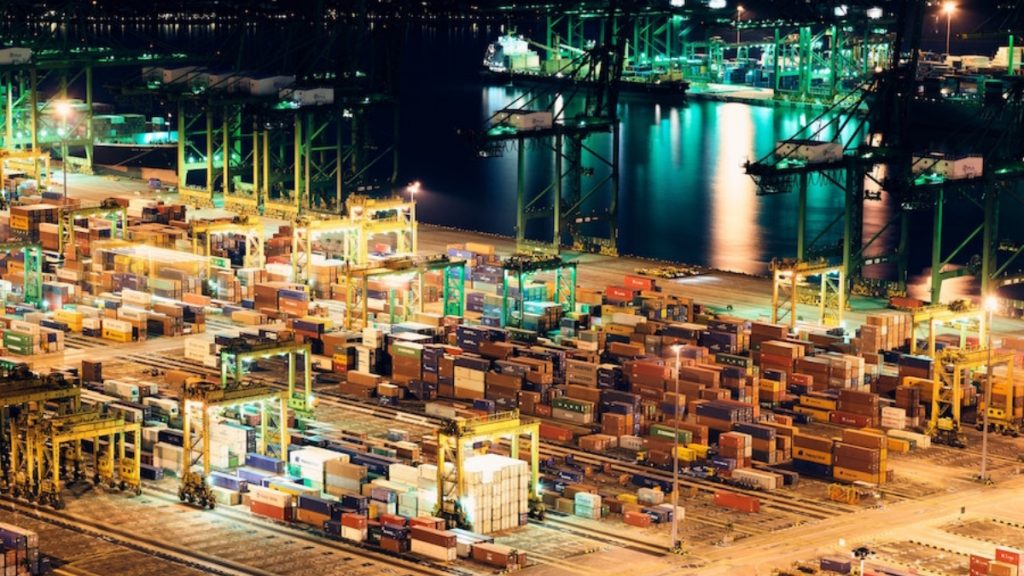As consumer needs continue to grow, the need for adequate transportation and storage of cargo is also on the rise. However, cargo damage can happen to anyone, and it’s not always an accident. Sometimes, even the most conscientious transporter may overlook preventable causes of cargo damage while on transit or under storage. Hence, it’s essential to consider factors that can prevent cargo damage and maintain its integrity during shipment or storage. Here are six typical causes of cargo damage while on transit that you can easily avoid.
1. Poor Packaging
If you’re shipping fragile goods, poor packaging is a significant cause of cargo damage. Suppose you aren’t using adequate protective measures like sturdy boxes, bubble wrap, and packing peanuts to ship glassware, fragile ornaments, or any other fragile items that might break or shatter during transit. In that case, your goods are vulnerable to damage. Properly package all your goods before putting them in crates to ensure they make it safely from point A to B.
It will be expensive to replace damaged goods, and also, there’re chances customers won’t buy broken merchandise. A suitable and protective packaging can reduce damages by more than 50%. It is always better to invest in proper packaging rather than paying for repairs. You can protect your cargo by contacting companies that provide customized packaging solutions per your requirements and needs. You can get more tips to reduce cargo damage and save money here.
2. Moisture Exposure
When moisture enters your cargo, it takes a toll on its contents. The excessive moisture can cause boxes to warp and other materials like paper to become soggy. If you’re shipping any food products or chemicals that could suffer damages by moisture exposure, it’s crucial to use packaging that prevents water from getting in. Packaging materials such as a plastic wrap or bubble wrap can help prevent water from entering your load, but they may not protect against liquids if spilled during transit.
Use plastic crates instead of wooden pallets for more heavy-duty protection against moisture exposure. Plastic boxes are impermeable to liquids and gases, making them ideal for transporting anything that needs to stay dry. If you do not correctly store your shipments after delivery, you could be exposing them to harmful conditions and lead to rust or mildew within days.
However, don’t pack items too tightly if condensation is a risk. Spacing your cargo will allow air to circulate throughout your load so that moisture doesn’t have a chance to build up. Proper air circulation makes it harder for condensation to form inside corrugated boxes than inside cardboard ones. It would be best to seal your cargo and store it in an environment with good airflows, such as a dry warehouse or garage.
3. Overload and Improper Tarping
Overloading and improper tarping are among the top reasons for cargo damage during transport. Ensure you don’t overstuff your cargo and use proper tie-down methods to secure all freight. Carrying too much weight can cause the load to shift and move, causing damages as it bangs into other cargo and containers. Improper or no tarping will also allow water and debris inside, exacerbating structural damage.
Be sure to properly load your freight for maximum safety and minimize cargo damage. Carpets may get stains if you do not protect them adequately by a tarp or covering sheet. If you’re shipping rugs or anything else that requires special protection, make sure you have appropriate covering material before loading up your truck. Otherwise, you could end up with a load that looks like a used indoor basketball court flooring.
4. Poor Temperature Conditions
Some goods are more sensitive to temperature changes than others. Hence, it’s always crucial to consider whether the load you deal with requires temperature-controlled conditions. For example, if you’re shipping fresh produce, you’ll want to take special care when packing it. High temperatures can cause fruit and vegetables to spoil before reaching their destination. On the other hand, low temperatures can cause frozen products like meat and seafood to thaw.
To prevent these types of damage, ensure you transport your cargo in refrigerated trucks with air conditioning. Alternatively, consider container cooling systems that use ice packs to keep things cool during transit. Your storage facilities should also be climate-controlled so that your products don’t get too hot or cold while waiting to be shipped.
5. Lack of Specialized Transportation
Sensitive goods require special handling and care. To fully protect your cargo, you can select a specialized transportation service provider for your shipment. For example, if you’re shipping medical equipment, pharmaceuticals, or even perishable food items, work with a company specializing in these shipments types.
Companies providing specialized transportation and storage facilities have experience in handling sensitive cargo. They will be able to provide you with additional services such as custom packaging, temperature monitoring, and more. Working with a specialized transportation service provider ensures that your product arrives safely at its destination without incident.
6. Lack of Accountability and Reliability
When shipping cargo via air, road, or sea transportation, you’ll deal with an outsourcing company. The supply chain industry is notorious for its lack of accountability & reliability, and it’s usually your businesses that suffer as a result.
For example, if your shipment suffers damages during transit because your logistics partner didn’t take proper care of it, they might refuse to compensate you for any losses. Such negligence can cost your business thousands in lost profits. It’s, therefore, safe to choose your logistics partners wisely by looking at their past track record and reputation.
Conclusion
While there are many causes of cargo damage while on transit, there are equally many ways to prevent them. By paying attention to load distribution, supply chain management, and other logistics factors, trucking companies can keep their shipments safe and sound. Contact your local logistics company today if you need to ship or store sensitive cargo.




